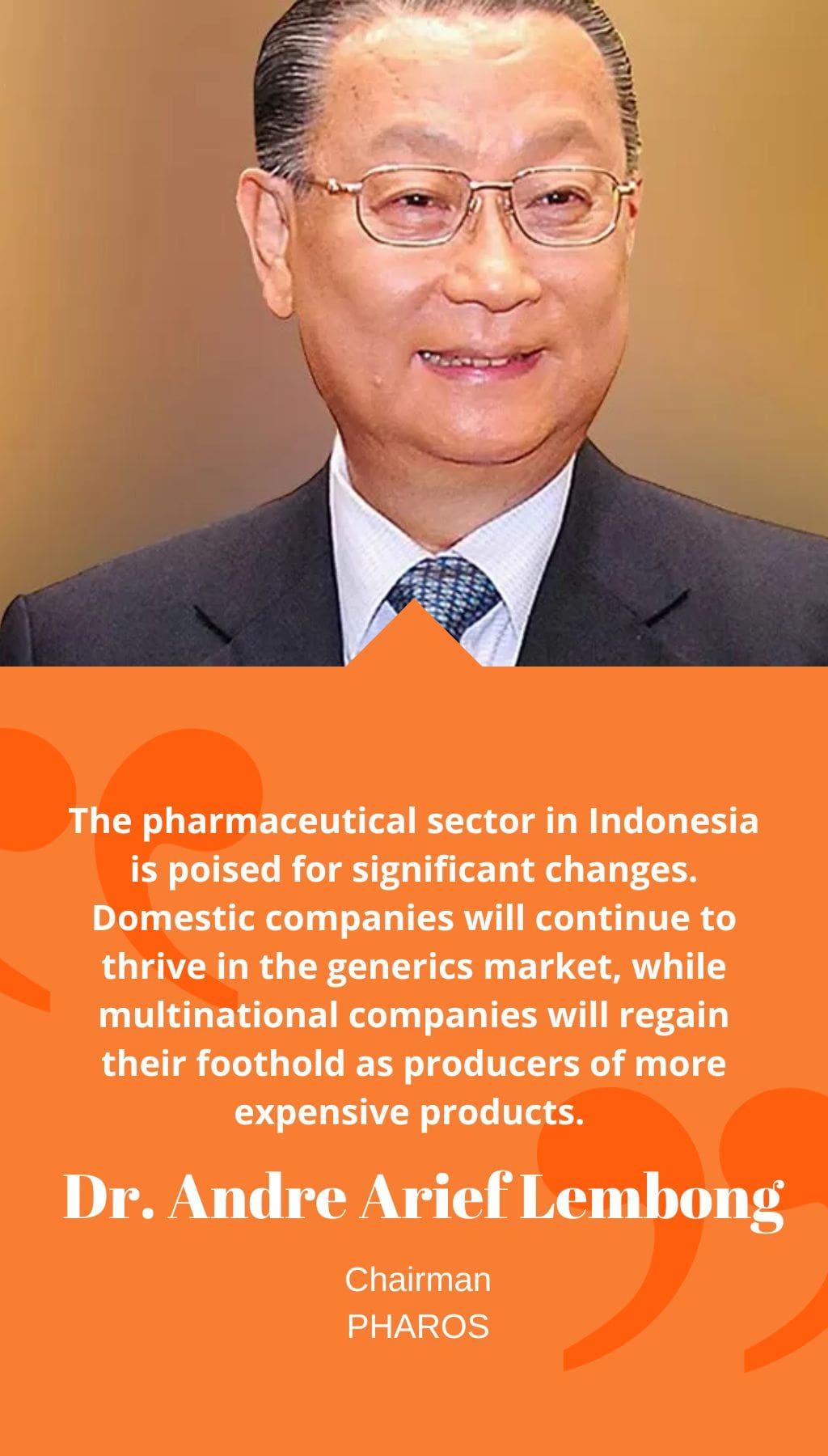
- Indonesia | 19 June 2015

Pharos is considered one of the oldest pharmaceutical companies in Indonesia. Can you provide a detailed overview of the company’s evolution from its inception to the present day?
Pharos was founded in 1971 by my father, with the initial mission of obtaining GMP certification and partnering with multinational companies to produce pharmaceuticals in Indonesia. At that time, there was a requirement for multinational pharmaceutical companies to collaborate with domestic companies for manufacturing purposes, which played a crucial role in Pharos’ early growth. In the 1990s, we recognized the commercial potential in developing and manufacturing our own products. Throughout our history, we primarily focused on ethical products. However, over the past decade, we expanded our scope to include over-the-counter (OTC) products, which now form the majority of our pharmaceutical business. As a result of this evolution, Pharos has emerged as the fifth largest pharmaceutical company in Indonesia.
Pharos has diversified its product offerings. Is there a specific area or product that can be considered its specialization?
Pharos covers a wide range of therapeutic areas with its product portfolio and does not concentrate on any specific product segment. Many of the products we manufacture are a result of licensing agreements with foreign companies, while others are generics developed by Pharos. Our commitment to business development is evident in our pipeline, which consists of approximately 1,000 new products. Our goal is to introduce around 60 new products to the market each year. Currently, around 70% of our products are OTCs, while the remaining 30% are ethical products. Our primary focus is on the domestic market, with only a small portion of our operations dedicated to export markets, such as Cambodia.
Pharos’ expansion into OTC products has been instrumental in its growth. Are there any other areas you have identified for further development?
One area we have identified for further development is the market for consumer healthcare products. This market offers weaker competition, less stringent regulations, and more attractive profit margins. Additionally, areas such as diagnostics and medical devices present solid opportunities for future growth.
The implementation of universal health care and BPJS reforms are expected to have a significant impact on Indonesia’s pharmaceutical industry. What major developments do you anticipate?
The pharmaceutical sector in Indonesia is poised for significant changes. Domestic companies will continue to thrive in the generics market, while multinational companies will regain their foothold as producers of more expensive products. Currently, there are around 150 pharmaceutical manufacturers, but due to competition triggered by BPJS, this number is expected to reduce to between 50 and 100 companies. BPJS will also impact retail outlets, as the prevalence of generics will increase. However, pharmacies are not incentivized to prioritize the sale of generics since branded products are more financially rewarding. On the other hand, BPJS hospitals are mandated to stock only generics, leading to a surge in their volume. This shift will affect non-BPJS hospitals, as customers may opt for subsidized treatments offered by BPJS hospitals.














